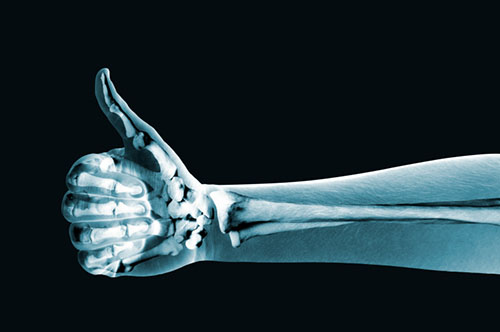Last updated on July 26, 2019
There’s a lot more to being a radiological technologist than flipping the ‘on’ switch on a machine. A radiologic technologist will generally also need to be capable of a variety of skills…
- Customer service/working directly with the public. Do you like people? If so, you might be just the right fit for helping provide personal assistance to patients as you complete their X-rays or administer their treatments.
- Gathering and making sense of information from multiple sources. What about multi-tasking? Do you have an eye for detail? Radiologic technologists are often responsible for keeping track of information coming from things like patient records, doctors, nurses and other relevant sources.
- Communication skills. Communication skills go hand-in-hand with customer service, but it deserves its own mention, too. You will need to be able to communicate your observations to the relevant parties — whether it be written, over the phone, through email or in person.
You will also be expected to keep up-to-date with new and emerging technologies related to your career field.
This may sound like hard work, but you will also find that working in health care can be extremely fun and rewarding. Furthermore, radiologic technologists have great earning potential — in as little as two years, graduates with an associate degree in Radiologic Sciences can expect to see pay ranging from $17-35 per hour.
What is Radiography?
Radiography is the medical process of taking an image of the inside of a person’s body, usually through X-rays. Those who study radiography can also go on to specialize in areas like mammography, computed tomography, magnetic resonance imaging, cardiovascular-interventional technology and nuclear medicine.
What is a Radiological Technologist?
Radiologic technologists will:
- work closely with physicians, following their orders precisely to explain diagnostic procedures to patients
- administer radiation therapy treatments
- secure exposed areas with radiation protection devices
- prepare diagnostic machines
- accurately position the patient
Outside of medical diagnostics and treatments, they may also:
- keep patient records
- adjust and maintain equipment
- prepare work schedules
- evaluate equipment purchases
- manage a department
How to Become a Radiologic Technologist/Radiology Tech Schools in Dallas
When it comes to radiologic technologist programs in Dallas, you’re in the right place! You can start at Brookhaven or El Centro for radiologic technologist associate degree programs. Graduates of either programs must pass the licensure exam for certification with the American Registry of Radiologic Technologists. Both colleges also offer opportunities for continuing education coursework for career advancement, including certifications in computer tomography and vascular intervention.
How Much Do Radiologic Technologists Make in Texas?
The starting salary for a radiologic technologist in Dallas and north Texas is about $37,000, with 8% job growth expected over the next three years. Advancement over time can vary depending on experience and specialization.
More Information About DCCCD
- Read an overview of both programs.
- Read some of the student success stories from DCCCD’s Radiologic Sciences programs.
- Learn about all of our nursing and health care programs.
